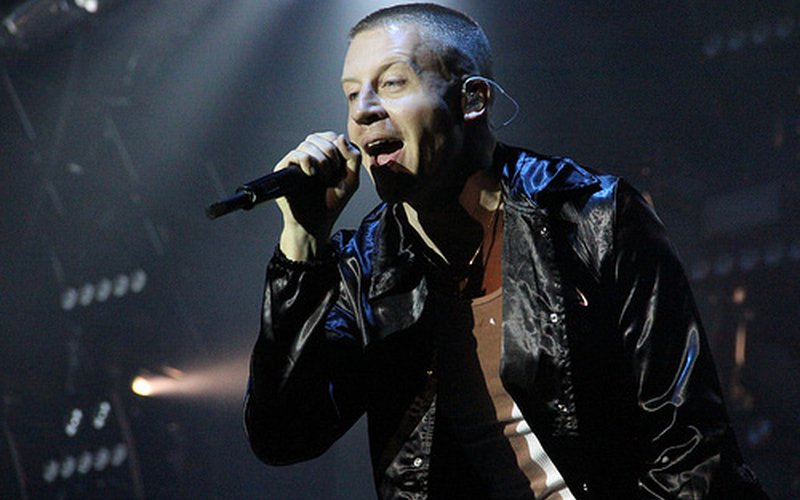
Throngs of people filled Memorial Stadium during Bumbershoot to watch Seattle's favorite son headline night two of his hometown festival. The excitement in the audience was palpable, buzzing with anticipation, bursting into a deafening roar at any small hint that the show might be starting—a flash of light, the quieting of a song, any sign of the man they were waiting for.
Donning the stage, sporting a simple buzzcut instead of his signature haircut, Macklemore was high energy from the very first long, high note of "Light Tunnels," the opening track of his early-2016 release This Unruly Mess I've Made. By the time Macklemore donned his now-iconic fur coat for "Thrift Shop," the single that put him on the map, he had the crowd in the palm of his hand.
Quietly juxtaposing the joys of fame with its pitfalls, He played "Brad Pitt's Cousin" and "Arrows" quite close together. It's not hard to imagine the spectrum of feelings about fame that Macklemore has experienced in a big way in these years of major commercial success. Throughout the show, he was unflinchingly honest and vulnerable, engaging with his audience personally at every opportunity. He often discussed his struggles with sobriety and the uncertainties that come with being a new parent.
He shows love to his hometown at every turn, playing "My Oh My" and "The Town" together, and talking about his own first Bumbershoots. There were two, the first he attended as a kid (George Clinton played), and the first he and Ryan Lewis played, opening the Fisher Green stage in 2009.
One of the show's highlights was a guest appearance from a selection of young rappers from the Hip-Hop Artist Residency program that Macklemore Sponsors at the Experience Music Project. This program brings together teenagers from low-income households with promising talent to nurture their talents and help hone their skills. A few of the program's rising stars performed small sample of their work to this massive crowd, who offered unwavering support to these super-talented kids. It sounds corny, but there's something truly beautiful about watching someone's dreams come to life before them.
In a somber streak right around the middle of the show, "Same Love," "Growing Up," "White Privilege II," and "White Walls" all came right in a row. "Same Love" and "Growing Up" all received glowing reception, but things got very quiet during "White Privilege II," in which he explores his own privilege, his own role in racial oppression, and his internal debate about how to fight against it appropriately. Say what you will about Macklemore, but he's nothing if not self-aware. He knows that his audience is predominantly young and white, with little experience with the concepts of privilege and oppression. He knows that through his own privilege he is able to reach these kids, to introduce them to these ideas, to implore them to internalize these concepts and look at the experiences of others, to elevate them, to participate, to care. By the end of the song, the crowd was on board, but a little apprehensive.
Rounding into the second hour of the show, things started getting silly, and the elation of the house continued to escalate. "Let's Eat" and "FDT" (Fuck Donald Trump)—for which he brought in Bay Area rapper G-Eazy—turned the energy way back up. Ever the showman, he used his second chart-topping single "Can't Hold Us" to take things to another level. Several members of the Seattle Seahawks joined him to hype the crowd.
"Dance Off" featured incredible break dancing from local dance crew Massive Monkees, and an actual dance-off between two audience members invited onstage (a pre-teen brought the house down with his killer B-Boy moves). Macklemore brought things to a close with this year's single "Downtown," with a guest appearance by Eric Nally of Foxy Shazam.
The truly remarkable thing about any Macklemore performance is the staggering showmanship. Every time you think the show can't get any bigger, it does. From the array of guest artists and local talent, to continually topping himself with massive stunts and stage antics, to the fireworks blasting from the top of the stadium at the end of the performance, the man knows how to put on a show. With his tireless, infectious optimism and earnest enjoyment of every moment of these shows, he can turn even the most jaded into believers despite themselves, even just for a couple hours.
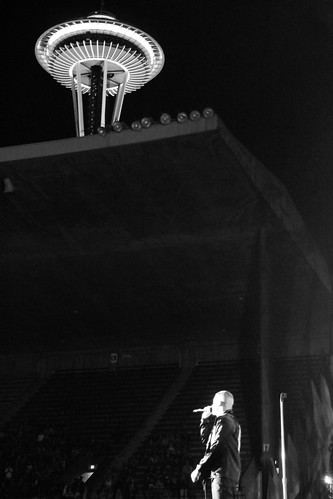
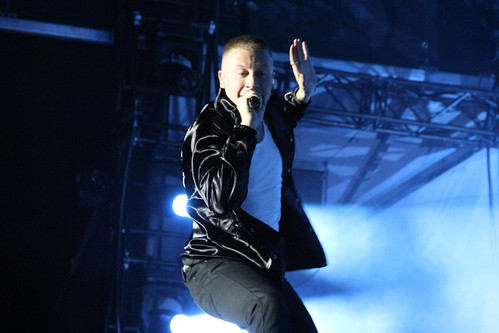
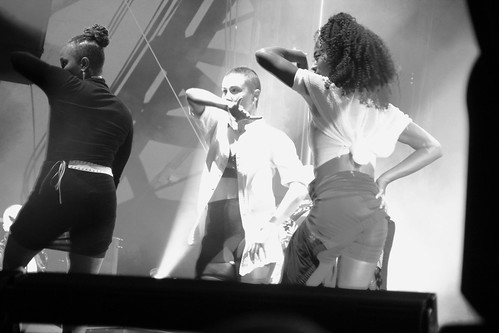
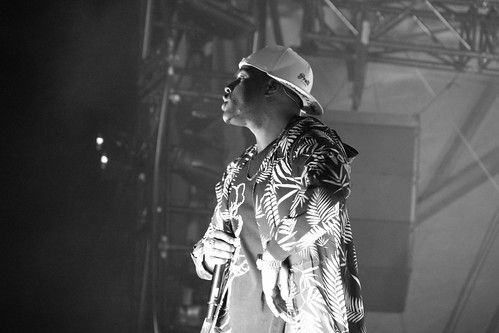
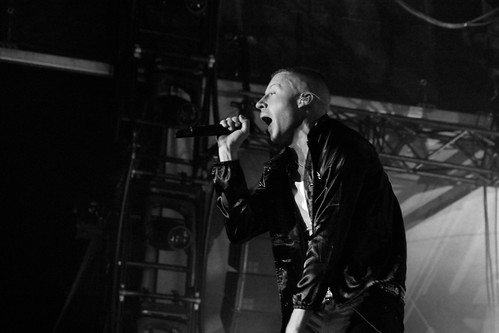
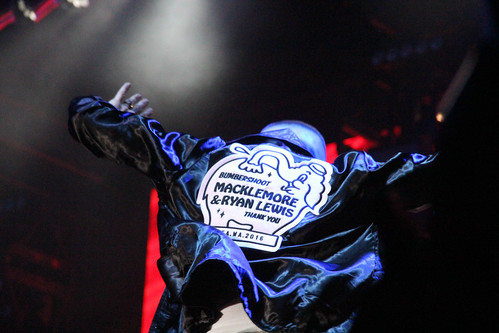
On the second day of Bumbershoot, Seattle garage-rock duo Pony Time played their final show to a full house in the KEXP Gathering Space on Saturday afternoon. Luke Beetham (vocals/bass) and Stacy Peck (drums) did not disappoint, turning out their usual bass-heavy tracks, highly danceable as evidenc…
Bumbershoot 2016's middle day was an interesting one. With a line management fiasco at the Key Arena the day before, police ran the line down the main drag, roping off necessary crosswalks and rerouting people trying to get their chicken burrito on at Chipotle into tree beds and bushes. And while s…
Producer and musician Erik Blood is a Seattle icon, working releases for a broad roster of local artists, including Shabazz Palaces, THEESatisfaction, The Moondoggies, and TacocaT. Released earlier this year, the influence of his diverse collaborations is apparent in his new record Lost in Slow Mot…